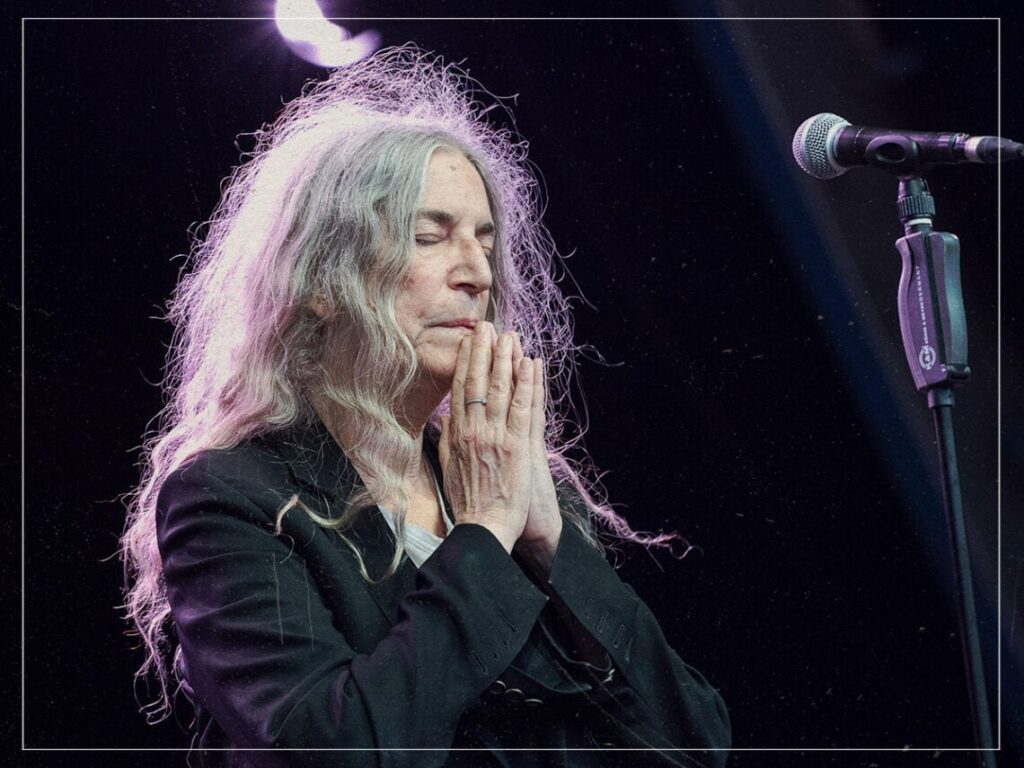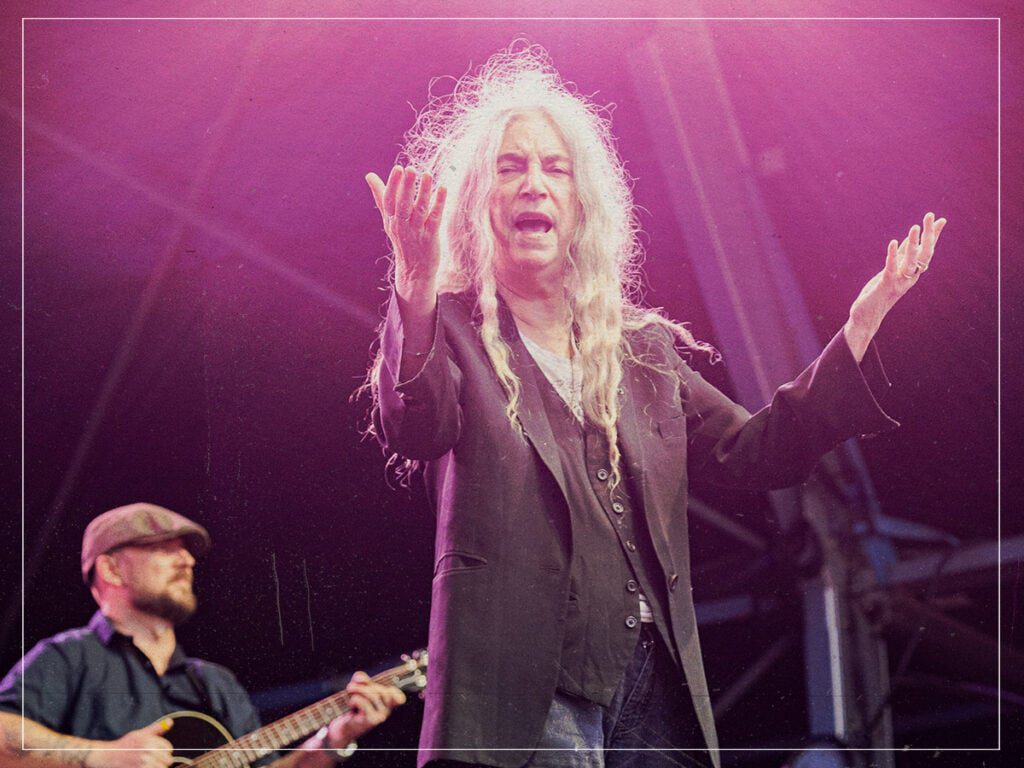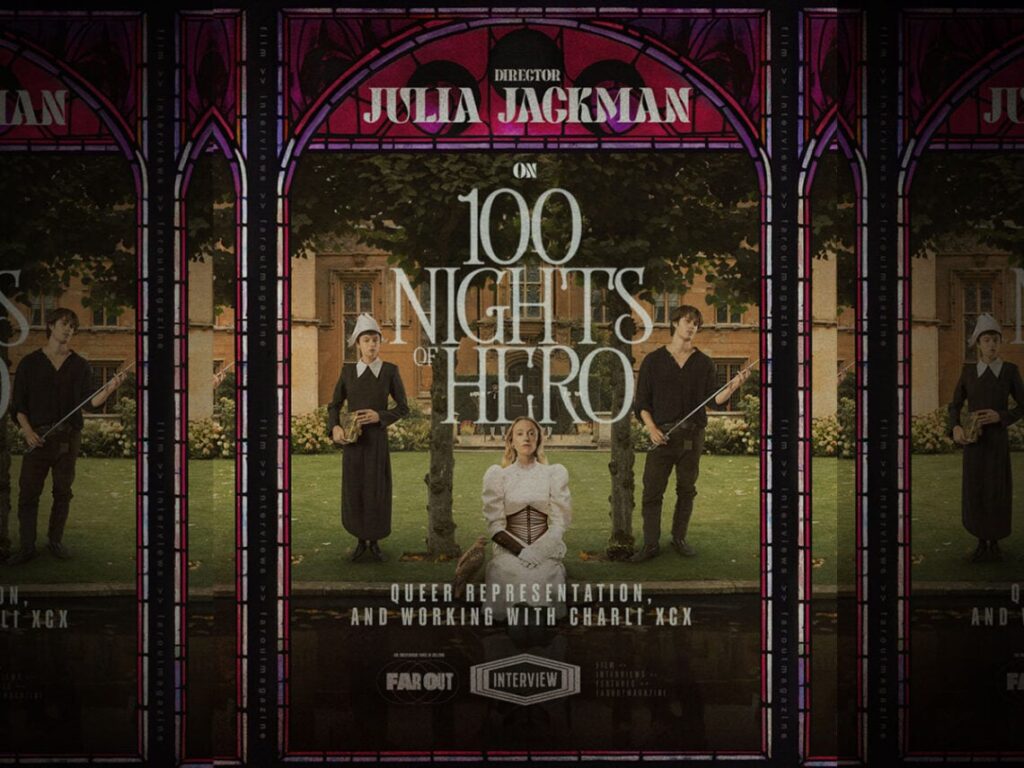“Good work”: why Patti Smith calls her gigs “jobs”
 Posted On
Posted On
(Credits: Far Out / Richard Thompson)
The iconic punk poet Patti Smith continues to perform worldwide, captivating an ever-growing following of devoted fans. Whether with her full band or during solo evenings of music and poetry, Smith remains active on the global stage. However, on her website, there is no mention of gigs or concerts, just a list of dates under the title “Jobs”, highlighting her unique approach to her craft.
To some, that might seem like an oddly sterile description. That is certainly not the atmosphere found at Smith’s concerts, though, where she performs her hits with the same electrifying energy and captivating presence that made her name in the 1970s. Her crowds sing and dance and offer her thunderous applause, all awash with the joy of a great gig and the excitement of seeing a legend at work. Not a single person in her multi-generational crowds would ever deem one of her works cold or distant like the word ‘job’ sounds like. Instead, each night is treated like something truly special, as Smith seems to feel just as privileged to be on the stage as her audience is to be watching her.
However, in Smith’s work and her ethos as an artist, there is no better way to describe her appearances than ‘jobs’. The simple act of using purposeful language captures her whole belief system regarding her role as an artist and the work she does, seeing it all as precisely that: work.
“Truthfully, I think of myself as a worker,” Smith told Interview magazine. While others might define her as a musician, songwriter, poet, or punk, her own view of herself is simply as someone who puts in the hours and effort for her craft. “Even when I was young… I remember when I did my first poetry reading, I didn’t write ‘Patti Smith, poet.’ I wrote, ‘Patti Smith, worker.’ Because that’s what I feel I do. I have multi-disciplines,” she explained.
It’s a beautifully grounding and humbling response. So many of Smith’s fans see her as a kind of otherworldly sage of divine inspiration. She seems to carry herself and operate within their aura of unlimited artistry, calling upon various muses and influences, recounting quotes from other writers and philosophers, and sitting within the lineage of musical greats. There’s a glow about her and her work that generations of writers and musicians have looked up to. But Smith’s own ethos is all about bursting that perception.

“I wouldn’t say that I’ve ever been a prodigy or anything,” she said. Instead, she revealed: “I have to work very hard at all the things that I do in order that they might be of worth. That’s what I think of myself as, a worker.”
The things that her fans might see as sparks of pure and glorious creativity, Smith wants everyone to see them as the result of effort and endurance, like the fruits of labour and the beautiful outcome of perseverance.
Even though she believes in the power and magic of artistry, Smith’s standpoint as an artist has always been that artistry is an active thing, and to be an artist is to also be someone constantly going to work. In the beautiful piece of advice that she delivered to the new generation, that was her main point. She makes it clear time and time again that it’s not enough to just wait for inspiration; to be a genuine and enduring artist, talent must be treated like a skill to be honed and practised.
“Build a good name. Keep your name clean,” she said, passing down some advice she got from William S. Burroughs. “Don’t make compromises, don’t worry about making a bunch of money or being successful,” she continued. Instead, she called upon young artists to care more about the process and effort put into their art than the outcome it might reap. She said, “Be concerned with doing good work and make the right choices and protect your work. And if you build a good name, eventually, that name will be its own currency.”
Born the daughter of a waitress and a machinist, Smith has always had a complete and utter devotional respect for work. To her, working is the art form and it’s that enduring effort that powers her as something to strive for. So calling her gigs ‘jobs’ in homage to the labour they take and in reference to how she sees her role as a worker is a simple way to honour her ethos.
“The nice thing about that is you can be a worker for as long as you live!” she concluded, “So, I never have to retire. I’m always going to be a worker.”
[embedded content]
Related Topics


